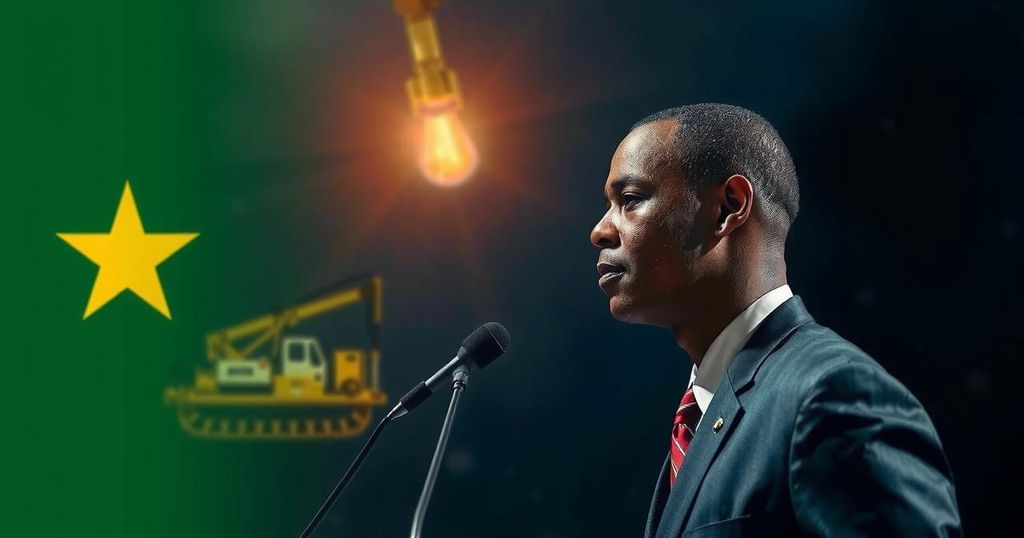Ghana’s upcoming presidential election highlights the critical issues arising from illegal mining, known as galamsey. Miners face dire conditions while contributing significantly to environmental degradation and public health crises. The incumbent NPP and opposition NDC are both challenged to address these problems effectively, as rising gold prices and youth unemployment continue to drive illegal mining activities. Public sentiment is growing among young voters for sustainable solutions.
In Ghana, the surge in illegal mining, known locally as “galamsey,” poses significant ecological and economic challenges as the nation heads into a crucial presidential election. With the ruling New Patriotic Party (NPP) candidate, Vice President Mahamudu Bawumia, and former President John Mahama of the National Democratic Congress (NDC) in a closely contested race, the repercussions of illegal mining have become a pivotal issue. Miners, like Frank, labor under harsh conditions and earn wages that contrast starkly with the devastating environmental and social costs of their activities, including polluted water supplies and degraded farmland. Despite promises from previous administrations to curb illegal mining, the practice has persisted, driven by rising gold prices and rampant youth unemployment, leading to widespread demonstrations demanding action against its adverse effects.
With galamsey contributing approximately 40 percent of Ghana’s gold output and employing over one million individuals, its impact is felt throughout the country, particularly in regions once flourishing with cocoa production. The ongoing crisis has led to intensified public discourse, particularly among younger voters who see the government’s failure to address the issue as indicative of a prioritization of immediate economic gain over sustainable practices. As Ghana’s leadership seeks resolution strategies amidst a chaotic electoral landscape, the voices of both miners and environmental advocates are increasingly clamoring for responsible engagement and systemic reforms to address the challenges posed by illegal mining and protect the nation’s natural heritage.
Ghana ranks as the sixth-largest gold exporter and the second-largest cocoa producer globally. The growth of illegal mining, referred to as “galamsey,” has created a complex crisis involving deep-rooted unemployment and environmental degradation. The detrimental effects of galamsey are particularly acute in agricultural regions, resulting in losses to fertile land and longstanding trees, alongside the poisoning of water bodies critical to communities. As the election approaches, these challenges amplify in urgency, coinciding with a need for governmental accountability and decisive action.
The current situation surrounding illegal mining in Ghana underscores the urgent need for effective policies and stakeholder engagement to address the intertwined issues of environmental degradation, public health, and economic stability. As the presidential election looms, candidates must navigate the delicate balance between economic development and environmental preservation. The voices of miners and environmental advocates alike echo the demand for solutions that integrate sustainability into Ghana’s mining practices to protect both people and the planet.
Original Source: www.cbs19news.com






